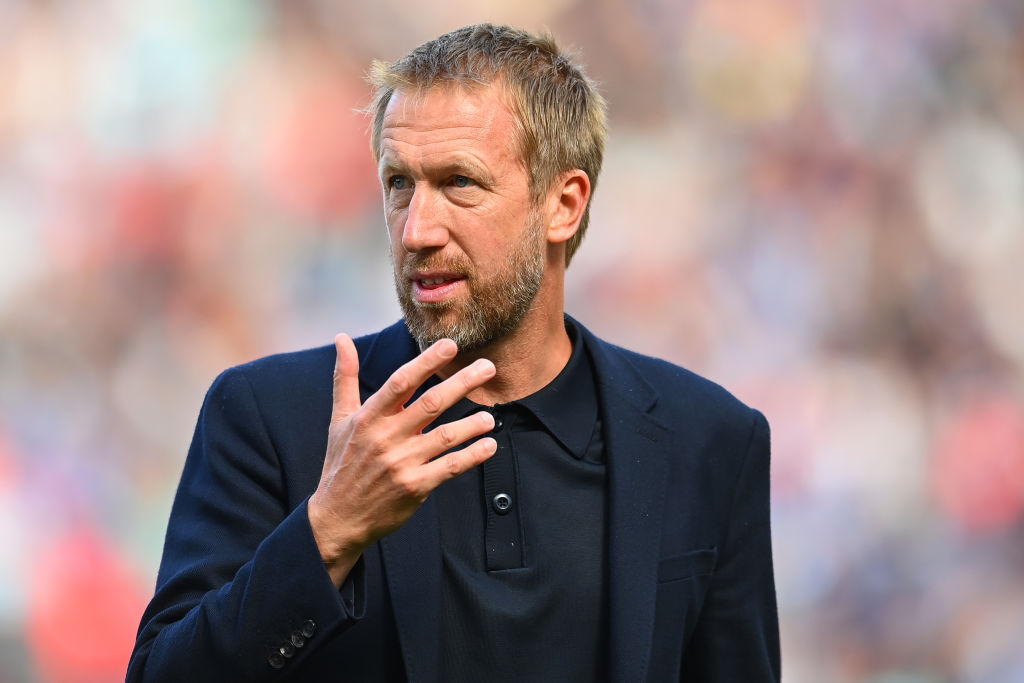It’s easy to see the attraction but Graham Potter’s Chelsea switch is a major gamble

On the face of it, it is easy to see why Chelsea part-owner, chairman and interim sporting director Todd Boehly was attracted to Graham Potter.
The 47-year-old Englishman has left Brighton and Hove Albion, his home since 2019, for the west London giants, who have handed him a five-year contract and pay the Seagulls £20m in compensation.
Potter’s stock is at an all-time high. At Brighton he has turned a risk-averse team accustomed to relegation battles into a much admired, upwardly mobile side.
He led them to their best ever top-flight finish of ninth place in the Premier League last season and has started the new campaign in even better fashion, sitting fourth after six matches.
He has done this while cementing a reputation as a thoughtful, progressive coach. He is seen as adventurous and tactically flexible – and used to playing without a striker, where Chelsea too are light.
Potter famously has a masters in emotional intelligence and rose to prominence at Ostersunds, the Swedish club whose quirky approach included team performances of Swan Lake.
It is easy to see the appeal of Chelsea to Potter, who has made no secret of his ambition. Rarely does one of the Premier League’s Big Six hire an English head coach – even one, like Potter, who has been touted as a successor to national team boss Gareth Southgate.
A move to Stamford Bridge offers the chance to test himself in an elite environment, with a completely different calibre of player at his disposal than he has had at Ostersunds, Swansea City or Brighton – save of course for left-back Marc Cucurella, who made the move from the south coast to the capital last month.
But for all the obvious attractions on both sides, it is hard not to wonder whether Potter and Chelsea are a good match.
He has made his name at two clubs that have clear philosophies, have innovated and are, essentially, well run. Do Chelsea under Boehly fall into that bracket? A few months in, one manager down and £250m spent, the jury is very much out.
Potter has benefited from working with a sporting director tasked with recruiting rough diamonds such as Alexis Mac Allister, Pascal Gross, Moises Caicedo and Enock Mwepu that Potter polished.
For most of his time at Brighton that was the highly-rated Dan Ashworth, formerly of the England set-up and now at Newcastle United.
Chelsea don’t currently have a specialist sporting director, Boehly’s ownership group having dispensed with Marina Granovskaia and Petr Cech, the two people tasked with overseeing recruitment under Roman Abramovich’s regime.
The club are thought to want to make an appointment but in the meantime Boehly has added the brief to his portfolio.
Potter has previously told the BBC: “I am ambitious. I want to succeed. But I am no magician. I need help. To be successful as a coach, you need good people around you – staff, board, CEO, the strategy of the club, the structures around it, the players.”
Ideally a sporting director would help to identify a new manager, not be asked to work with one that has just arrived.
It’s worth remembering that Potter’s time at Brighton was not all plain sailing. Ten months ago, during a 12-game winless run, some home fans booed his team off the pitch.
If he doesn’t engineer a quick turnaround in Chelsea’s fortunes he could find himself spat out by a club unmatched by their peers for managerial churn.
David Moyes is one of the last British managers to be handed the reins at a Champions League club and it took him years to rehabilitate his image after being sacked by Manchester United.
Potter joining Chelsea looks as much of a gamble for him as for Boehly and the Blues.
